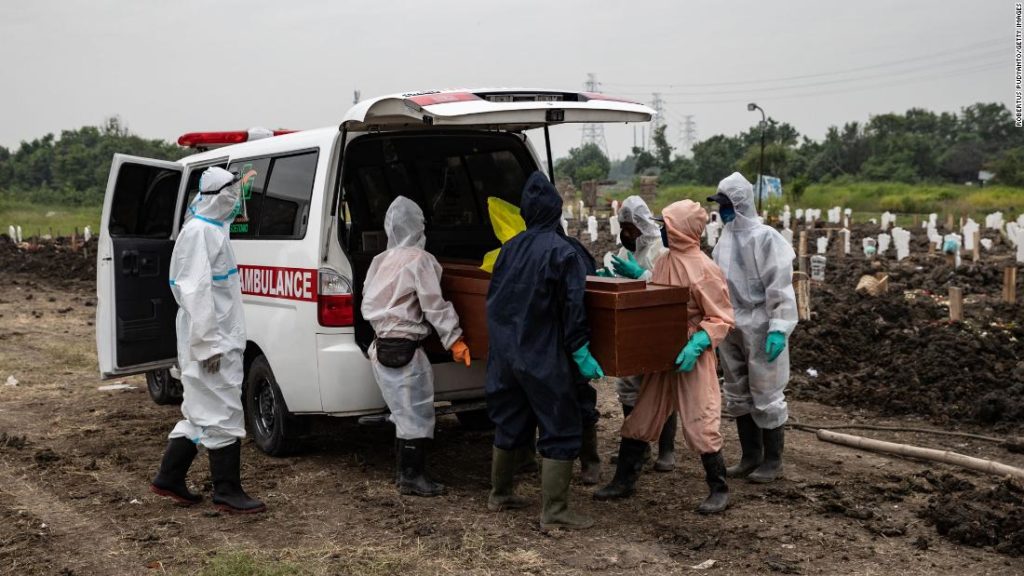The world’s fourth most populous nation is facing one of Asia’s worst outbreaks, with a record high of 27,913 new cases reported on Saturday. The islands of Bali and Java — which includes the capital Jakarta — went under emergency lockdown Saturday to curb the spread of the resurgent virus.
In a statement, the Sardjito hospital on Java said 63 patients died between Saturday and early Sunday after it nearly exhausted its oxygen supplies. The hospital said it had sought more oxygen for days before the incident, but virus patients streaming in since Friday had pushed it beyond its capacity, consuming oxygen faster than expected.
The crisis eased when it began to receive fresh supplies just before dawn on Sunday. A hospital spokesman could not confirm if all the dead had suffered from Covid-19.
In response, the government has asked the gas industry to increase production of medical oxygen, said health ministry official Siti Nadia Tarmizi. “We also hope people don’t stock up on oxygen,” she added.
Separately, the ministry overseeing Indonesia’s Covid-19 response ordered the gas industry to prioritize production to fill estimated demand of 800 metric tons of oxygen each day for medical needs.
The industry has idle capacity of 225,000 metric tons a year that can still be used, the ministry added.
Hospitals across Java are being pushed to the brink by the spread of the highly infectious Delta variant, which was first identified in India, where it caused a dramatic spike in cases and pushed medical resources to the brink of collapse.
In Jakarta, the government said the daily figure of funerals following Covid protocols had risen tenfold since early May, with 392 burials on Saturday alone.
The country has “seen a dramatic increase in confirmed cases after the festive holidays,” said Indonesian Health Minister Budi Gunadi Sadikin on Friday.
Authorities had not initially realized how quickly the virus was spreading in this latest wave, he told CNN — adding that the Delta variant was behind the rapidly deteriorating situation.
“This variant hits everyone — not only children, but also adults,” he said. “If we compare with the previous wave, the number of confirmed cases increased significantly faster for both adults and children.”
The number of infected and hospitalized children is higher this time around compared to Indonesia’s previous wave, perhaps due to the overall higher number of infections nationwide — but their rate of hospitalization is still lower than for adult patients, he said.
The government is now building a field hospital in a stadium in Jakarta, which would provide 5,000 additional beds, and is looking to recruit newly graduated nurses and doctors across the country to help treat patients in the worst-hit areas.
Starting Tuesday, Indonesia will clamp down on arrivals of foreign visitors, allowing in only those who are fully vaccinated and have a negative PCR test, although diplomatic travel is excluded. Visitors will still have to spend eight days in quarantine upon arrival.
You may also like
-
Afghanistan: Civilian casualties hit record high amid US withdrawal, UN says
-
How Taiwan is trying to defend against a cyber ‘World War III’
-
Pandemic travel news this week: Quarantine escapes and airplane disguises
-
Why would anyone trust Brexit Britain again?
-
Black fungus: A second crisis is killing survivors of India’s worst Covid wave

